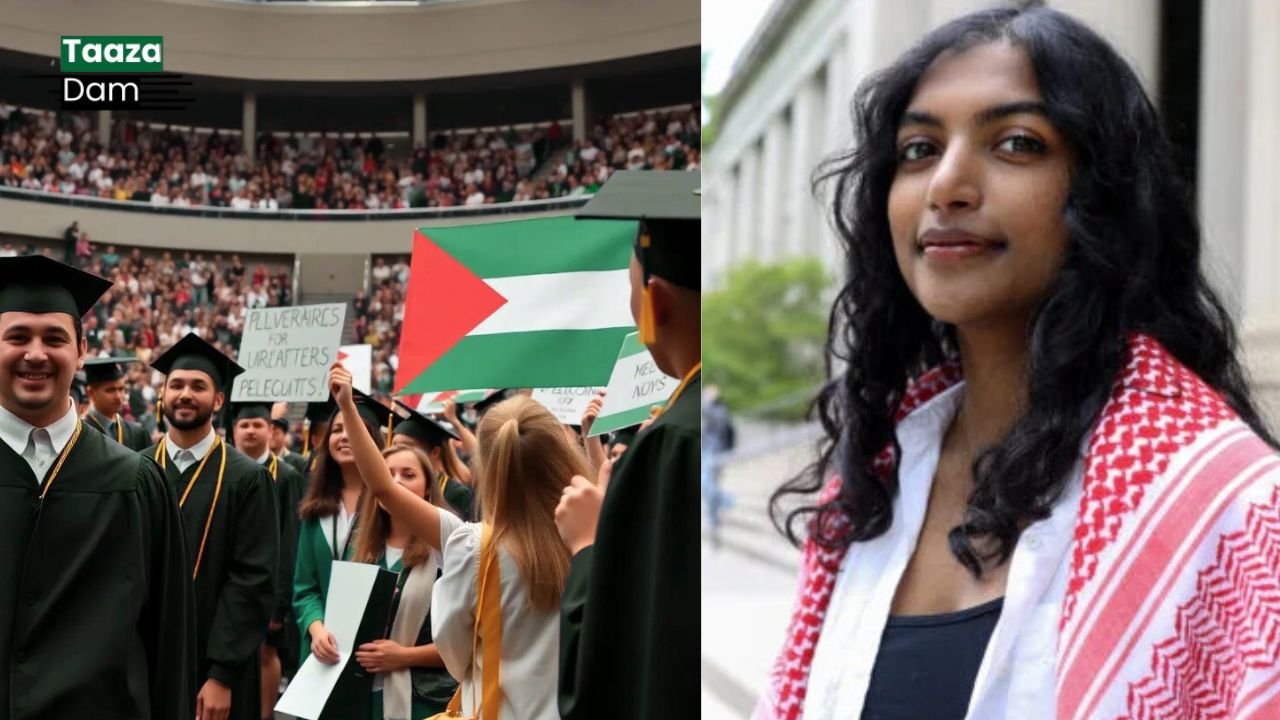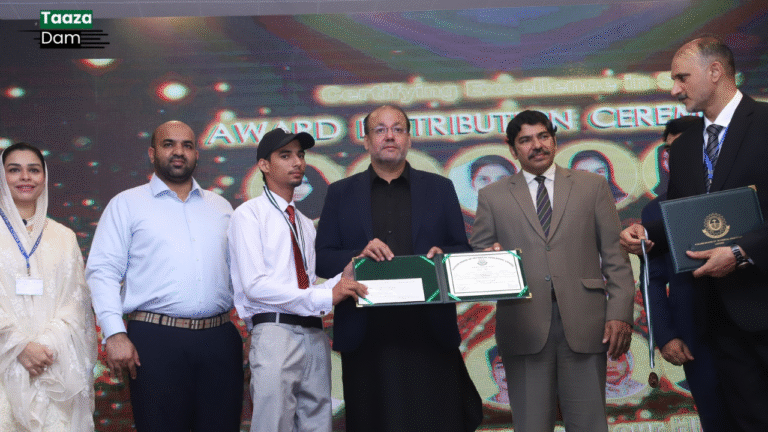Indian-Origin MIT Student Denied Graduation Spot for Supporting Palestine

In a move that has ignited discussions on free speech within academic institutions, the Massachusetts Institute of Technology (MIT) barred its Class of 2025 president, Megha Vemuri, from participating in the graduation ceremony. The decision followed Vemuri’s delivery of a pro-Palestine speech during a commencement event, leading to widespread reactions and debates.
The Incident
On May 29, 2025, during the OneMIT Commencement Ceremony, Megha Vemuri, an Indian-American student and the elected class president, delivered a speech that deviated from the approved version. In her address, she:
- Praised student protests advocating for Palestinian rights.
- Criticized MIT’s ties with Israeli military institutions.
- Accused the university of being complicit in what she termed the “genocide” of Palestinians.
Her remarks elicited mixed reactions, with some attendees expressing support, while others, including a group of Jewish students, walked out in protest.
MIT’s Response
Following the speech, MIT Chancellor Melissa Nobles informed Vemuri via email that she would:
- No longer serve as the student marshal for the graduation ceremony.
- Be barred from attending the undergraduate commencement event.
- Have her diploma mailed instead of being conferred in person.
The university cited that Vemuri had deliberately misled commencement organizers and used the platform for an unsanctioned protest.
Vemuri’s Reaction
In response to MIT’s actions, Vemuri labeled the decision as an “overreach”, asserting that her speech was an expression of her beliefs and not a staged protest. She emphasized the importance of free speech and the right to voice concerns on global issues, especially within academic settings.
Broader Context
This incident at MIT is part of a larger trend across U.S. universities, where students advocating for Palestinian rights have faced disciplinary actions. Institutions like the University of Chicago and the University of Southern California have also witnessed similar controversies, highlighting the ongoing tension between campus activism and institutional policies.
Conclusion
The barring of Megha Vemuri from MIT’s graduation ceremony underscores the complex dynamics between freedom of expression and institutional regulations. As debates continue, this event serves as a focal point in discussions about the role of universities in accommodating diverse viewpoints and the boundaries of student activism.






